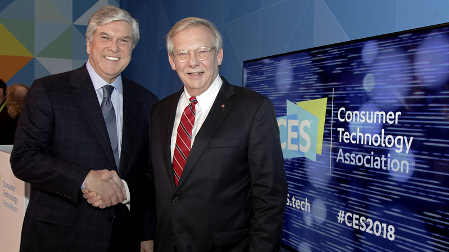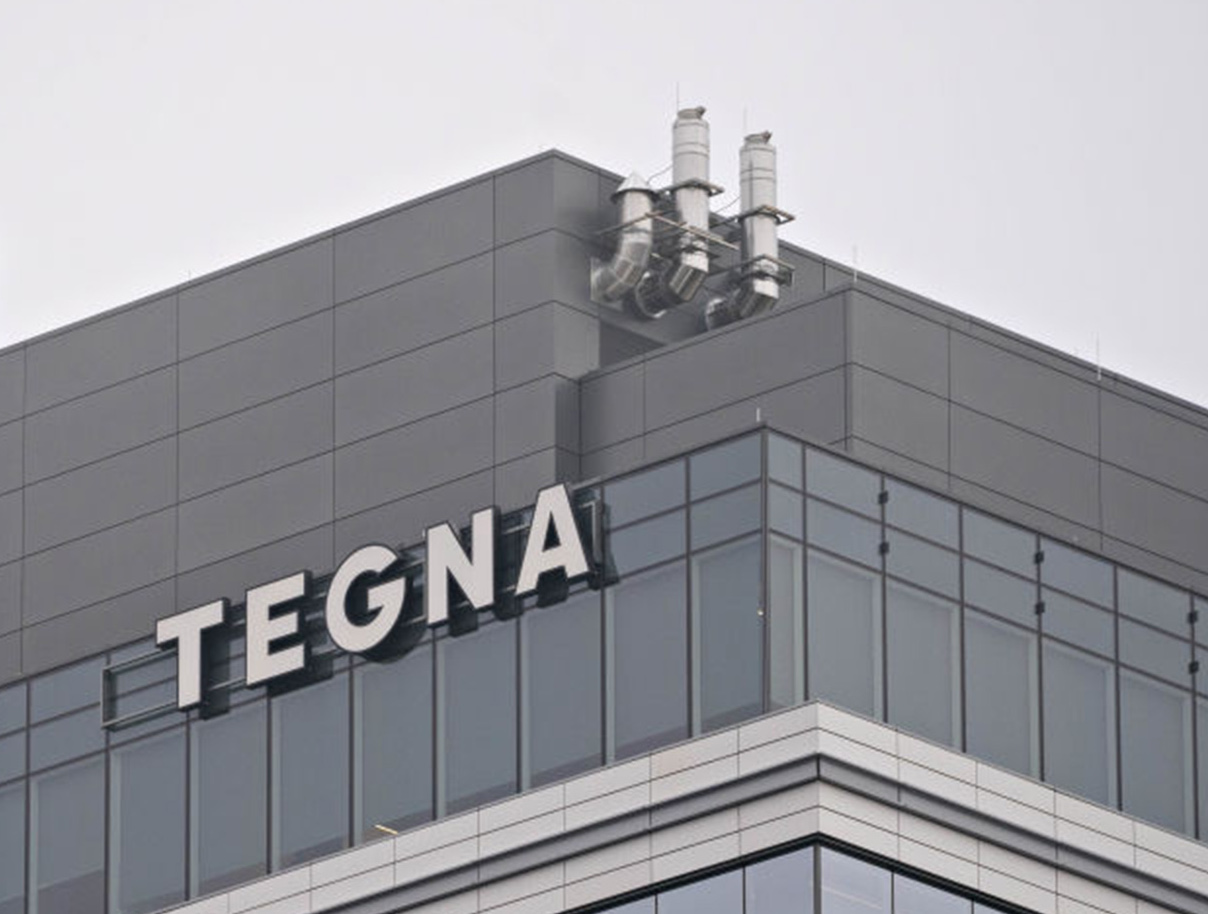LAS VEGAS—LG Electronics announced it plans to actively participate in U.S. broadcast trials of the ATSC 3.0 next-gen TV standard at CES 2018 this week. LG Electronics will leverage the experience it has gained in South Korea since the launch of ATSC 3.0 in May 2017.

NAB President and CEO Gordon Smith congratulates John Taylor, LG Electronics USA senior vice president, on company's work behind the ATSC 3.0 standard.
"The flexible, extensible new ATSC 3.0 standard will unleash an innovation revolution, marrying broadband and broadcasting to deliver a range of new services for consumers in Korea, the U.S. and around the world," said Dr. Jong G. Kim, SVP in the office of the CTO, LG Electronics.
Technologies developed by LG and its Zenith R&D subsidiary in the U.S. are part of three major layers of the next-gen TV standard, he said. They include contributions to the A/322 Physical Layer Standard, which the FCC adopted in its November 2017 authorization of next-gen TV. Others include the scrambler, FEC, bit interleaver, mapper, time interleaver, OFDM framer, frequency interleaver, pilots, reserved tones and guard interval functions.
LG began selling ATSC 3.0 4K Ultra HD televisions in South Korea last year. Since last fall, all new LG 4K UHD TVs and most new LG smart TVs sold in South Korea include dual ATSC 3.0-ATSC 1.0 tuner chips.
South Korean broadcasters KBS, MBC and SBS are broadcasting ATSC 3.0-based 4K UHD and will provide over-the-air 4K UHD coverage of the 2018 Winter Olympics from Pyeongchang, South Korea, next month.
Separately at CES, the Advanced Television Systems Committee announced that its membership has approved the remaining individual standards that make up the ATSC 3.0 suite of standards.
The professional video industry's #1 source for news, trends and product and tech information. Sign up below.
More information is available on the LG Electronics website.
For a comprehensive list of TV Technology’s ATSC 3.0 coverage, see our ATSC3 silo.
Phil Kurz is a contributing editor to TV Tech. He has written about TV and video technology for more than 30 years and served as editor of three leading industry magazines. He earned a Bachelor of Journalism and a Master’s Degree in Journalism from the University of Missouri-Columbia School of Journalism.

